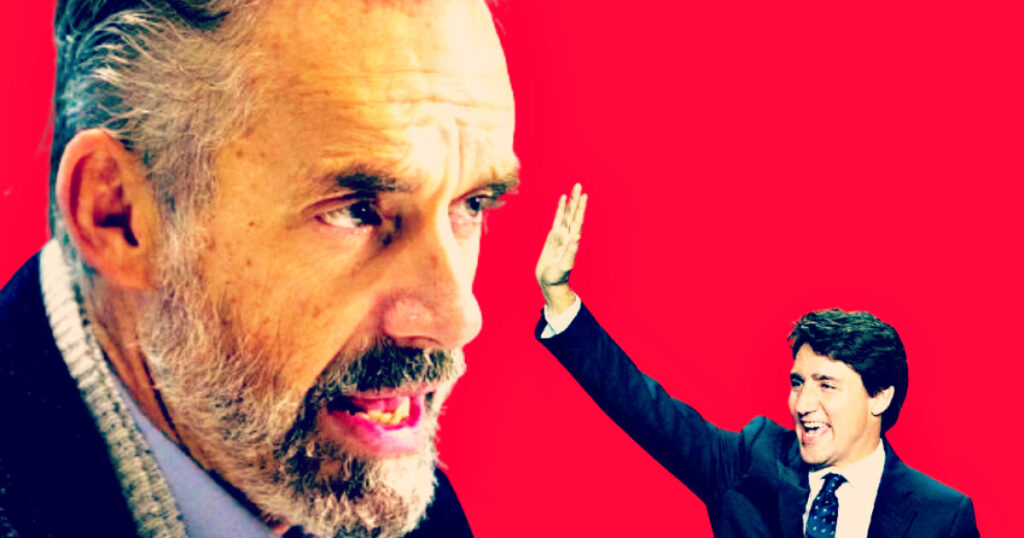In the midst of mounting political pressure and declining approval ratings, Canadian Prime Minister Justin Trudeau has taken a controversial approach to combat his unpopularity. During a recent public inquiry into foreign interference, he made explosive allegations against well-known conservative figures, including Jordan Peterson, claiming they were receiving financial backing from Russian state media. This assertion, made under oath, has come under scrutiny for its lack of supporting evidence and appears to be part of a broader strategy for Trudeau. By accusing critics of foreign meddling, Trudeau aims to galvanize his base and deflect criticism, particularly regarding his handling of the COVID-19 pandemic and the Freedom Convoy protests.
Jordan Peterson, a prominent conservative commentator, has responded vehemently to Trudeau’s claims. He firmly denies the accusation of receiving funding from Russia, asserting his financial independence from such sources. Peterson views the Prime Minister’s allegations as serious and damaging, suggesting that they carry the weight of a treasonous label. His reaction signals the increasing tension between conservative voices in Canada and the Trudeau administration, as the Prime Minister deploys incendiary rhetoric to navigate a politicized landscape fraught with allegations of foreign influence in domestic affairs.
The context of Trudeau’s remarks is grounded in a discussion about the influence of foreign entities in Canadian politics, particularly during the COVID-19 pandemic. He cited examples of Russian propaganda targeting anti-vaccine sentiments that surfaced during the Freedom Convoy, framing it as a strategic effort to sow discord within the country. By linking well-known figures like Peterson to these foreign influences, Trudeau attempts to reframe the narrative around his government’s pandemic responses. However, critics argue that his tactics may backfire, further alienating him from both his political opponents and the public.
Peterson’s initial response includes considering a legal approach, exploring the possibility of filing a defamation lawsuit against the Prime Minister. While acknowledging the difficulties associated with such actions, he expresses the importance of standing up against unfounded allegations, particularly from a figure of Trudeau’s stature. This potential legal battle reflects a broader trend of escalating tensions between public figures and politicians, often resulting in court cases that highlight the challenges of free speech and accountability in a politically charged environment.
Strikingly, Peterson’s deliberations about legal action also raise questions about the ethical implications of standing against perceived defamation. He considers whether he has a moral obligation to pursue this case, particularly given the potential damage to his reputation. In an age where misinformation can spread rapidly, the effects of public statements made by political leaders become magnified, thus emphasizing the need for careful discourse. Peterson’s situation encapsulates the complex intersection of politics, media, and personal accountability in contemporary society.
As Trudeau continues to face political challenges, including significant public resistance and allegations regarding his leadership, his strategy of invoking foreign influence may serve to rally a segment of his core supporters. However, it risks further polarization in the Canadian political landscape. The unfolding conflict between Trudeau and Peterson is emblematic of a broader struggle within Canadian society as concerns about governance, media integrity, and national identity come to the forefront. How this confrontation evolves could have lasting ramifications for both figures and the political climate in Canada as they navigate the complexities of public discourse and accountability.

